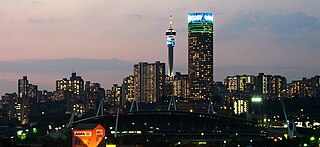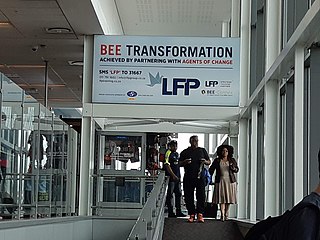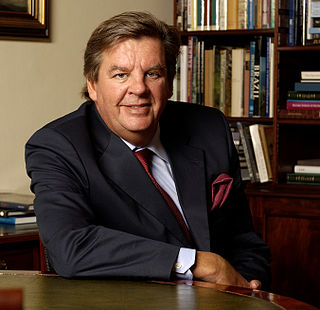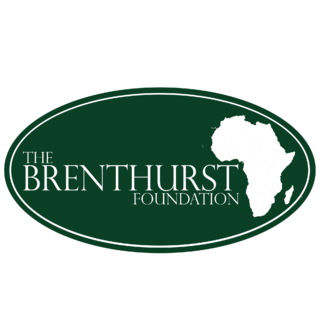Related Research Articles

The economy of South Africa is a mixed economy, emerging market, and upper-middle-income economy, one of only eight such countries in Africa. The economy is the most industrialized, technologically advanced, and diversified economy in Africa. Following 1996, at the end of over twelve years of international sanctions, South Africa's nominal gross domestic product (GDP) almost tripled to a peak of US$416 billion in 2011. In the same period, foreign exchange reserves increased from US$3 billion to nearly US$50 billion, creating a diversified economy with a growing and sizable middle class, within two decades of ending apartheid.

The Democratic Alliance is a South African political party and the official opposition to the ruling African National Congress (ANC). The party is broadly centrist, and has been attributed both centre-left and centre-right policies. It is a member of Liberal International and the Africa Liberal Network. The DA traces its roots to the founding of the anti-apartheid Progressive Party in 1959, with many mergers and name changes between that time and the present. The DA ideologically shows a variety of liberal tendencies, including social liberalism, classical liberalism, and conservative liberalism.
Eskom Hld SOC Ltd or Eskom (Afrikaans: Elektrisiteitsvoorsieningskommissie) is a South African electricity public utility. Eskom was established in 1923 as the Electricity Supply Commission (ESCOM). Eskom represents South Africa in the Southern African Power Pool. The utility is the largest producer of electricity in Africa, and was among the top utilities in the world in terms of generation capacity and sales. It is the largest of South Africa's state owned enterprises. Eskom operates a number of notable power stations, including Matimba Power Station and Medupi Power Station in Lephalale, Kusile Power Station in Witbank, Kendal Power Station, and Koeberg Nuclear Power Station in the Western Cape Province, the only nuclear power plant in Africa.

Matamela Cyril Ramaphosa is a South African businessman and politician serving as the fifth and current president of South Africa since 2018. A former anti-apartheid activist, trade union leader, and businessman, Ramaphosa is also the president (leader) of the African National Congress (ANC).

Black Economic Empowerment (BEE) is a policy of the South African government which aims to facilitate broader participation in the economy by black people. A form of affirmative action, it is intended especially to redress the inequalities created by apartheid. The policy provides incentives – especially preferential treatment in government procurement processes – to businesses which contribute to black economic empowerment according to several measurable criteria, including through partial or majority black ownership, hiring black employees, and contracting with black-owned suppliers. The preferential procurement aspect of BEE has been viewed as paradigmatic of a sustainable procurement approach, whereby government procurement is used to advance social policy objectives. So-called "BEE deals" – transactions aiming to increase black ownership of large businesses – have been conducted on a large scale, with BEE transactions concluded between 1994 and 2005 valued at between R150 billion and R285 billion.

Absa Group Limited, commonly known simply as Absa and formerly the Amalgamated Banks of South Africa (ABSA) until 2005 and Barclays Africa Group Limited until 2018, is a multinational banking and financial services conglomerate based in Johannesburg, South Africa and listed on the Johannesburg Stock Exchange. It offers personal and business banking, credit cards, corporate and investment banking, wealth and investment management and bank assurances.

Johann Peter Rupert is a South African billionaire businessman, who is the eldest son of business tycoon Anton Rupert and his wife Huberte. He is the chairman of the Swiss-based luxury-goods company Richemont and the South Africa-based company Remgro. Since April 2010, he has been the CEO of Compagnie Financiere Richemont. Rupert and family were ranked the richest in South Africa on the 2023 Forbes list, with an estimated net worth of US$10.7 billion.
An urban enterprise zone is an area in which policies to encourage economic growth and development are implemented. Urban enterprise zone policies generally offer tax concessions, infrastructure incentives, and reduced regulations to attract investments and private companies into the zones. They are a type of special economic zone where companies can locate free of certain local, state, and federal taxes and restrictions. Urban enterprise zones are intended to encourage development in deprived neighborhoods through tax and regulatory relief to entrepreneurs and investors who launch businesses in the area.
South Africa since 1994 transitioned from the system of apartheid to one of majority rule. The election of 1994 resulted in a change in government with the African National Congress (ANC) coming to power. The ANC retained power after subsequent elections in 1999, 2004, 2009, 2014, and 2019. Children born during this period are known as the born-free generation, and those aged eighteen or older, were able to vote for the first time in 2014.

Corruption in South Africa includes the improper use of public resources for private ends, including bribery and improper favouritism. Corruption was at its highest during the period of state capture under the presidency of Jacob Zuma and has remained widespread, negatively "affecting criminal justice, service provision, economic opportunity, social cohesion and political integrity" in South Africa.
Brenthurst may refer to:
The Brenthurst Library is a private repository of Africana in Parktown, Johannesburg built by Harry Oppenheimer in 1984 as he started to disengage from the family's mining interests. It houses a collection of some 20,000 volumes, including rare manuscripts and documents. Among these were the only complete record of the proceedings of the treason trial of Nelson Mandela, until the papers were handed over to the Mandela estate in November 2008.

The Brenthurst Foundation is a Johannesburg-based think-tank established by the Oppenheimer family in 2004 to support the Brenthurst Initiative in seeking ways to fund African development and to organize conferences on African competitiveness.
Sanlam is a South African financial services group headquartered in Bellville, Western Cape, South Africa. Sanlam is the largest insurance company in Africa. It is listed on the Johannesburg Stock Exchange, the Namibian Stock Exchange and the A2X. Established in 1918 as a life insurance company, Sanlam Group has developed into a diversified financial services business. Its five business clusters comprise Sanlam Personal Finance, Sanlam Emerging Markets, Sanlam Investments, Sanlam Corporate and Santam.
Theophilous James Bennett "Theo" Botha is a South African shareholder activist. He has queried many companies in the area of good corporate governance, ethics, executive compensation, environmental practices and Black Economic Empowerment. He has also criticized South African corporate governance guidelines as too lenient.

The energy policy of Malaysia is determined by the Malaysian Government, which address issues of energy production, distribution, and consumption. The Department of Electricity and Gas Supply acts as the regulator while other players in the energy sector include energy supply and service companies, research and development institutions and consumers. Government-linked companies Petronas and Tenaga Nasional Berhad are major players in Malaysia's energy sector.

The Harry Oppenheimer Fellowship Award is awarded annually by the Oppenheimer Memorial Trust. It is considered the top award for research on the African continent.
Jonathan M. E. Oppenheimer is a South African billionaire businessman and conservationist, and the executive chairman of Oppenheimer Generations, a former executive of De Beers and a former vice-president of his family's firm, Anglo American plc.

VBS Mutual Bank was a South African mutual bank. In 2018 it was declared insolvent and bankrupt and placed under curatorship, with South African citizens and taxpayers defrauded out of roughly R2 billion.

South Africa’s energy crisis or load shedding is an ongoing period of widespread national blackouts of electricity supply. It began in the later months of 2007 towards the end of Thabo Mbeki's second term as president, and continues to the present. The South African government-owned national power utility, and primary power generator, Eskom, and various parliamentarians attributed these rolling blackouts to insufficient generation capacity.
References
- "Oppenheimers pledge to boost transformation". Independent Online. Retrieved 30 July 2008.
- "A second CODESA?". Financial Mail. Archived from the original on 2009-01-09. Retrieved 30 July 2008.
- "Brenthurst plan under fire". Fin24. Retrieved 30 July 2008.[ permanent dead link ]
- "Sars proposes tax incentives to encourage black empowerment". Business Report. Archived from the original on December 28, 2004. Retrieved 30 July 2008.
- "Cool response to Brenthurst initiative". Business Report. Retrieved 30 July 2008.[ dead link ]
- "Oppenheimer to SA's rescue". News24. Retrieved 30 July 2008.[ permanent dead link ]
- "New debate about transformation has begun, sparked by the Oppenheimer dynasty". Cape Times. Retrieved 30 July 2008.